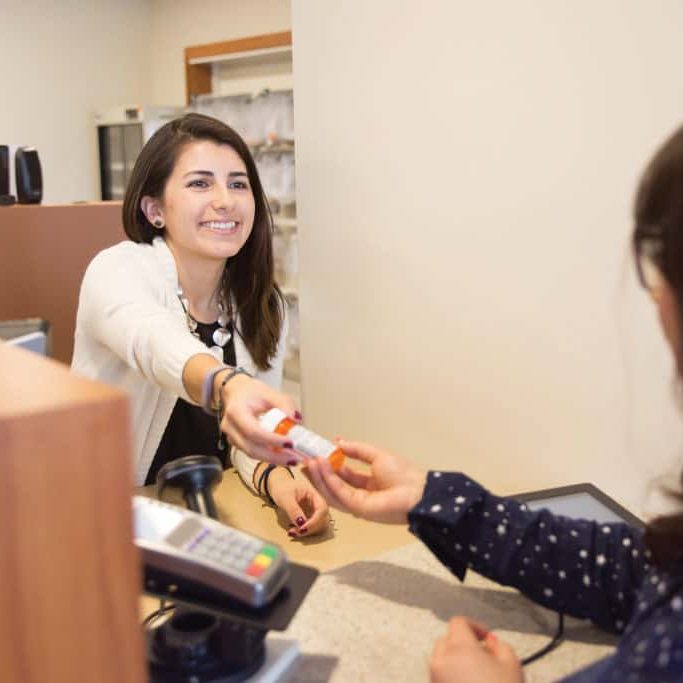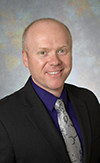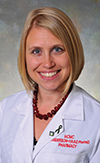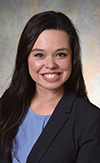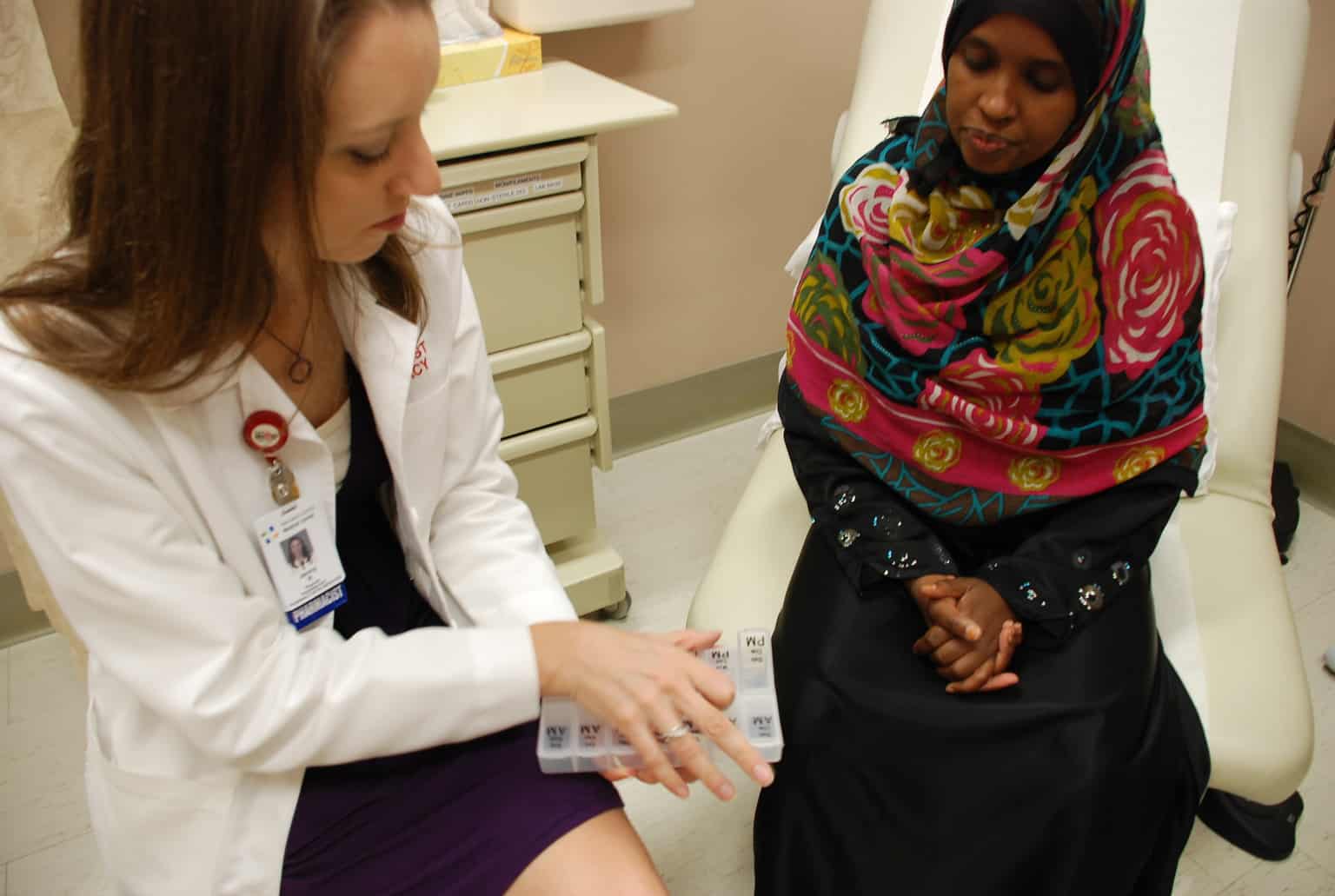
Pharmacy Residency
Training pharmacy residents and fellows for over 40 years
Direct patient care provided by pharmacists in ambulatory and hospital settings
65 clinical pharmacist preceptors
Level I Adult and Pediatric Trauma Center
Essential teaching hospital for healthcare professionals
Safety net hospital caring for low-income, uninsured and vulnerable patients
Advanced pharmaceutical training in clinic and hospital settings
The Pharmacy Residency Programs are postgraduate training programs that center on patient care and pharmacy practice management. Specialized residency programs emphasize patient outcomes in the pharmacy profession.
Pharmacists at Hennepin Healthcare collaborate with interdisciplinary departments to provide quality patient care in acute care, ambulatory care, community pharmacy, and Poison Control Center.
Salary and Benefits
Hennepin Healthcare offers a competitive annual salary and benefits to all pharmacy program residents, including individual health insurance, dental insurance, vacation days, project days, professional days, and a reimbursement stipend for travel to professional conference(s). PGY-1 Residents earn $50,000 with an additional $2250 travel stipend. PGY-2 Residents earn $54,000 with an additional $2750 travel stipend.
Conferences
Residents will attend and participate in both regional and national conferences as individualized per program. Please see each program for conference details.
Service Requirement
Residents will adhere to the ASHP Duty Hours Statement, document duty hours as requested and contribute to departmental staffing, per their individual program requirements as noted below. Shift changes will be managed by the residents, the residency director and the schedulers, in accordance with the ASHP duty hours statement:
Except for the residents training in the ambulatory care setting, residents are to attend and participate in all codes when on-site and on duty
- Residents will participate in codes during clinical rotations and during their specified code month during the residency year.
- ACLS and BLS certification will be obtained and maintained as a function of code participation during the residency year.
- Staffing is individualized per program. Please see individual programs for specifics.
PGY-1 Residency Programs
Purpose
The PGY-1 pharmacy residency program at Hennepin Healthcare builds on Doctor of Pharmacy (PharmD) education to prepare clinical pharmacists for medication-related care of patients with a wide range of conditions, eligible for board certification, and eligible for postgraduate year two (PGY2) pharmacy residency training.
Hennepin Healthcare offers TWO distinct PGY-1 Pharmacy Residency Programs:
- PGY-1 Program – focused on caring for patients in the hospital and ambulatory settings.
- Ambulatory PGY-1 Program – focused on caring for patients in the ambulatory and community pharmacy settings.
The programs share a set of ASHP goals and objectives. Requirements for each program include orientation/ operational training, service, management/ administration, clinical rotations, leadership training, research, and education. Graduates of both PGY-1 Residency Programs will be competent and confident practitioners of direct and indirect patient care in multiple practice environments. They will be accountable for achieving optimal medication management as collaborative members of the healthcare team. These pharmacists will exercise skill in educating and communicating with other healthcare professionals, patients, and the community on topics relating to patient-centered care. They will demonstrate professional maturity by assessing their own performance, exhibiting a commitment to the profession, and exercising leadership in improving the safety of the medication-use system.
Due to the difference in practice locations, there are subtle differences between these two programs, which are highlighted below. Candidates should choose to apply to the one program that best fits their professional goals.
PGY-1 Program
Residents will achieve ASHP goals, objectives and activities through participation in hospital and ambulatory rotations. There are five resident positions within this program.
Clinical Rotation Requirements
- Internal medicine
- Cardiology
- Nephrology
- Critical care (MICU or SICU)
- Ambulatory care (Transplant Clinic, Cancer Center, Medicine Clinic, HIV Clinic)
Elective Rotation Opportunities
- Infectious disease
- Surgery/ neuroscience
- Toxicology
- Emergency medicine
- Psychiatry
- Pediatrics (NICU/ PICU/ General Peds)
- Burn Management
- Evening rotations (cardiology/nephrology, surgery/ internal medicine, critical care)
- Transitions of Care
Service Requirement
All residents will staff two holidays and every other weekend (23 staffing weekends). Staffing may include daytime or evening shifts in nephrology, decentral clinical care, or central pharmacy services. Residents are not scheduled for staffing shifts Monday through Friday and will have project days on each Monday following a staffing weekend which may be remote or work from home. Residents will cover the clinical on-call pager for at least two weeks during the year and attend/ participate in all codes during clinical rotations and during their specified code month.
Ambulatory PGY-1 Program
Residents will achieve ASHP goals, objectives and activities through participation in ambulatory and community pharmacy rotations. There is one resident within this program.
Clinical Rotation Requirements
- Direct patient care (Ambulatory Care Clinic rotations)
- Research
- Teaching at the University of Minnesota
Elective Rotation Opportunities
- Pain management
- Mental health
- Transitions of care
- Specialty community pharmacy services in renal transplant and/or HIV
- Specialty ambulatory clinic areas (HIV, Transplant Clinic, Cancer Center, Liver Clinic, Rheumatology Clinic, and Dermatology Clinic).
Service Requirement
The PGY-1 Ambulatory Resident will staff up to two holidays, every fourth weekend, and a total of two months in blocked format, during the residency program.
PGY-1 Residency Teaching and Leadership
All PGY-1 Residents will enhance teaching abilities and contribute to departmental leadership activities for professional development, as noted below:
- Attend and participate in leadership and management meetings
- Prepare, present and participate in journal clubs
- Teach/ precept pharmacy students on Introductory Pharmacy Practice Experience (IPPE) and Advanced Pharmacy Practice Experiences (APPE) rotations
- Teach/ precept medical students and residents on rounds, in simulation sessions and through formal and informal in-service presentation opportunities at Hennepin and at the University of Minnesota Medical School.
- Teach/ precept pharmacy students at the University of Minnesota College of Pharmacy (PGY-1 Ambulatory Resident)
PGY-1 Residency Project Requirements
Residents will complete and present research within the organization and at regional and national meetings. Additionally, residents will compose research into a professionally acceptable manuscript format for possible journal publication. Research activities are as noted below:
- Medication Use Evaluation
- Submission of the completed project in written format is required
- Presentation at an appropriate internal committee is requested and presentation/publication outside the hospital is optional
- Longitudinal Residency Project
- Submission of the completed project in written manuscript format is required
- Presentation of the project in Poster and PowerPoint format is required
Longitudinal Management Requirements
Residents will contribute to departmental management activities, as noted below:
- Submission and investigation of adverse drug reports within Event/Near Miss Reporting System
- Preparation and distribution of pharmacy newsletters and/or professional communications
- Attendance and participation in at least one hospital or ambulatory committee
- Policy, procedure and protocol revision – clinical and administrative – with the preparation of and medication class review and/ or cost analysis for the Pharmacy and Therapeutics Committee
Conferences
Residents will attend and participate in a variety of regional and national conferences throughout the year. Residents will work with their RPD to determine which conferences they will attend. Previous conferences attended by PGY-1 Residents include:
- Minnesota Society of Health-System (MSHP) Residency Research Forum, Residency Project Presentations Forum or Pharmacists Midyear Clinical Meeting
- Minnesota Pharmacists Association MTM Symposium
- University Health Consortium / Vizient Meeting
- American Society of Health-System Pharmacists (ASHP) Midyear Meeting
With over 30 years of pharmacy residency training, in a number of different practice settings, HCMC and Hennepin Healthcare provide a comprehensive, patient-focused experience. For questions regarding the Traditional PGY-1 program, please contact Joel Peterson, PharmD, BCPS at [email protected]. For questions regarding the Ambulatory PGY-1 Program, please contact George Konstantinides, PharmD, BCPS, AAHIVP at [email protected].
PGY-2 Ambulatory Care
Purpose
PGY2 pharmacy residency programs build on Doctor of Pharmacy (Pharm.D.) education and PGY1 pharmacy residency programs to contribute to the development of clinical pharmacists in specialized areas of practice. PGY2 residencies provide residents with opportunities to function independently as practitioners by conceptualizing and integrating accumulated experience and knowledge and incorporating both into the provision of patient care or other advanced practice settings. Residents who successfully complete an accredited PGY2 pharmacy residency are prepared for advanced patient care, academic, or other specialized positions, along with board certification.
This 12-month PGY-2 Ambulatory Care Pharmacy Residency Program provides residents the opportunity to accelerate their growth beyond entry-level competence in patient-centered care and to further the development of leadership and teaching skills that can be applied in any position and in any practice setting related to ambulatory care. At the end of the residency, the goal is for the resident to practice as an independent ambulatory care practitioner, to be a competent preceptor, and possess the skills necessary to develop their own ambulatory care practice. Activities involving direct patient interaction in an ambulatory setting, physician consultation, teaching, and clinical research are major components of this specialized ambulatory care residency.
Ambulatory Care at Hennepin Healthcare
Hennepin Healthcare includes a 484-bed hospital and downtown clinics, as well as a system of neighborhood clinics throughout the metro. Clinical pharmacists have been an active part of the ambulatory treatment team at Hennepin Healthcare since 1985. Currently, there are approximately 16 clinical pharmacist preceptors working in 10 community pharmacies and 15 ambulatory clinics.
Residency Rotation Requirements
The following requirements in service, leadership, management, practice development, and research are designed to enhance and further develop residents’ overall knowledge in order to become clinically and professionally competent practitioners by the end of the residency program. Residents will achieve ASHP goals, objectives and activities through participation in the following rotations:
Clinical Rotation Requirements
- Direct Patient Care
- Internal Medicine Clinic
- Staffing (Homeless Shelter Clinic)
- Management of Ambulatory Clinical Services
- Ambulatory Practice Development
- Practice Leadership
Clinical Elective Rotation Opportunities
- HIV/HCV/Infectious Disease
- Poison Center/ Toxicology
- Transitions of Care
- Psychiatry
- Introduction to Academia
- Cardiology and Anticoagulation
- Coordinated Care Center (Ambulatory ICU)
- Inpatient Medicine
- Kidney Transplant Clinic
- Oncology
- Informatics
Residency Opportunities/Expectations/Requirements
Residents will participate and contribute to leadership and management activities for enhanced teaching skills and for the professional development of leadership abilities, as noted below:
- Participation in ambulatory care journal club
- Teach/precept pharmacy students on Advanced Pharmacy Practice Experiences (APPE) and PGY-1 residents on ambulatory care rotations
- Create or update existing collaborative practice agreements
- Serve as Co-Editor for Ambulatory Care Drug Updates newsletter
- Attend and participate in a hospital or ambulatory committee
- Prepare and provide clinical or disease-focused lectures to ambulatory, hospital, pharmacy and primary care staff, as requested
- Prepare and distribute pharmacy publications and professional ambulatory care drug information updates
Residency Project Requirements
Residents will complete and present research within the organization and at regional or national meetings. Additionally, residents will compose research into a professionally acceptable manuscript format for possible journal publication. Research activities are as noted below:
- Medication Use Evaluation/ Drug Use Evaluation
- Submission of completed project in written format is required
- Presentation within the hospital at an appropriate committee as requested
- Presentation/publication outside the hospital is optional
- Longitudinal Residency Project that is suitable for publication
- Submission of completed project in written manuscript format is required
- Presentation of residency project to an appropriate audience outside the Pharmacy Department
- Complete a business plan for practice development
Conferences
Residents will attend and participate in both regional and national conferences as follows:
- Minnesota Pharmacists Association MTM Symposium
- One national conference determined by resident and residency director
Service Requirement
The resident will adhere to the ASHP Duty Hours Statement, document duty hours as requested and contribute to departmental staffing, as noted below:
The resident will staff approximately one day per week in his/ her internal medicine continuity clinic providing medication therapy management and will work one shift per week providing medication therapy management as part of a respite program at the homeless shelter clinic.
PGY-2 Internal Medicine
Purpose
The PGY-2 Internal Medicine residency program at Hennepin Healthcare builds on Doctor of Pharmacy (Pharm.D.) education and PGY1 pharmacy residency programs to contribute to the development of clinical pharmacists in specialized areas of practice. PGY-2 residencies provide residents with opportunities to function independently as practitioners by conceptualizing and integrating accumulated experience and knowledge and incorporating both into the provision of patient care or other advanced practice settings. Residents who successfully complete an accredited PGY-2 pharmacy residency are prepared for advanced patient care, academic, or other specialized positions, along with board certification, if available.
This PGY2 Internal Medicine Residency is a 12-month specialized training program designed to advance inpatient and ambulatory care clinical skills used in the pharmacotherapeutic management of the internal medicine patient. Emphasis will be placed on transitions of care by providing direct patient care experiences in both the inpatient and outpatient practice settings. Graduates of this program will be skilled practitioners prepared to practice in an inpatient clinical or ambulatory care practice setting.
Residency Rotation Requirements
PGY-2 Internal Medicine goals and objectives are achieved over a 12 month period. As a teaching and research-based hospital, interdisciplinary teaching and precepting are emphasized throughout the year in addition to residency project research. Flexibility in the length and number of elective rotations allows the resident to tailor this program to their specific needs.
Clinical Rotation Requirements
- Orientation
- Internal Medicine*
- Internal Medicine I – General Medicine
- Internal Medicine II – General Medicine w/Discharge Counseling emphasis
- Internal Medicine III – Hospitalist emphasis
- Internal Medicine IV – Cardiology w/Teaching emphasis
- Ambulatory Care
- Internal Medicine/ Pain
- Infectious Disease
- Cardiology Consults
- Staffing
- Research Project
- Management
* Internal Medicine II-IV is a combined inpatient medicine and ambulatory care rotation with residents alternating weeks between the Inpatient Medicine service and the Coordinated Care Clinic. Emphasis is placed on transitions of care and patient care continuity through discharge counseling and ambulatory pharmacist follow-up post-discharge.
Clinical Elective Rotation Opportunities
- Nephrology
- Pediatrics
- Burn
- Oncology
- Psychiatry
- Evening Medicine
- Family Medicine
- Medical ICU
- HIV/ GI/ Liver Clinic
- Solid Organ Transplant
- Specialty Pharmacy
- Transitions of Care
Opportunities, Expectations, and Requirements
Residents will participate and contribute to teaching, management, and leadership activities:
- Teach and precept Advanced Pharmacy Practice Experience (APPE) pharmacy students and PGY-1 Residents on internal medicine rotations
- Active participation in at least one hospital or ambulatory care committee
- Provide lectures to medical residents, medical students, dentistry residents, and pharmacy staff as requested
- Lead multiple PGY-2 internal medicine journal clubs for PGY-1 Residents and pharmacy staff
- Prepare and distribute pharmacy publications as requested
Residency Project Requirements
Residents will complete a longitudinal research project suitable for journal publication. Research will be presented to an appropriate audience within the organization and at a regional and/or national conference.
- Medication Use Evaluation
- Submission of completed project in written format
- Presentation of results at appropriate hospital committee is optional
- Longitudinal Research Project
- Submission of completed project in written manuscript format
- Presentation of residency project in PowerPoint format to an appropriate audience within the organization and at regional/national conferences
Conferences
Residents receive a stipend to attend and participate in the following regional and national conferences:
- University Health Consortium/ -Vizient Meeting
- American Society of Health-System Pharmacists Meeting
- Midwest Pharmacy Residency Conference
Service Requirement
The PGY-2 Internal Medicine Pharmacy Residents will staff two holidays and every third weekend in a decentralized internal medicine practice setting. Additionally, these pharmacy residents will cover the clinical on-call pager for a minimum of two weeks during the residency program.
PGY-2 Critical Care
Purpose
PGY2 pharmacy residency programs build on Doctor of Pharmacy (Pharm.D.) education and PGY1 pharmacy residency programs to contribute to the development of clinical pharmacists in specialized areas of practice. PGY2 residencies provide residents with opportunities to function independently as practitioners by conceptualizing and integrating accumulated experience and knowledge and incorporating both into the provision of patient care or other advanced practice settings. Residents who successfully complete an accredited PGY2 pharmacy residency are prepared for advanced patient care, academic, or other specialized positions, along with board certification, if available.
Specifically, the PGY2 critical care residency program at HCMC provides the resident opportunities to accelerate their growth beyond entry-level professional competence in patient-centered care and in pharmacy operational services focusing on clinical and professional skills necessary to be a successful critical care pharmacist; and to further the development of leadership, research and teaching skills that can be applied in any position or practice setting related to critical care often including clinical practice in the intensive care unit and emergency medicine setting, fellowship or academia within this realm.
Residency Rotation Requirements
PGY-2 goals and objectives are achieved over a 12 month period. As a teaching and research-based hospital, interdisciplinary teaching and precepting are emphasized throughout the year in addition to residency project research. Flexibility in the length and amount of elective rotations allows the resident to tailor this program to their specific needs.
Clinical Rotation Requirements
The following requirements in service, management, and research are designed to enhance and further develop residents’ overall knowledge and skill upon completion of the program. Residents will achieve ASHP goals, objectives, and activities through participation in the following rotations:
- Surgical Intensive Care (3 rotations, 4 weeks each)
- Medical Intensive Care (3 rotations, 4 weeks each)
- Emergency Medicine (6 weeks)
- Evening Critical Care (2 rotations of 2 weeks)
- Medication Safety (2 weeks)
- Clinical Elective Rotation Opportunities (12-13 weeks total):
- Burn Unit
- Cardiology
- Infectious Disease
- Kidney Transplant
- Neonatal ICU/ Pediatric ICU
- Nephrology
- Neurocritical Care/ Stroke
- Toxicology (4 weeks)
-
Longitudinal – Practice Management, Codes, Research (activities throughout the year)
- Research (3-4 weeks of dedicated time)
- Committee Participation
- Book Club and Journal Club
- Lectures/ In-service
- Staffing in MICU and SICU
- Professional Meeting Attendance
- Code Coverage
- Teach/ Mentor/ Precept
PGY-2 Critical Care Residency Opportunities, Expectations, and Requirements
Residents will participate and contribute to clinical leadership and management activities for enhanced teaching skills and for professional critical care specialist development, as noted below:
- Attendance and participation in journal club meetings and book club discussions to enhance residents’ knowledge and understanding of critical care topics and primary journal article review
- Teaching and precepting of pharmacy students on Advanced Pharmacy Practice Experiences (APPE) and PGY-1 pharmacy residents on critical care rotations
- Preparation and provision of clinical or disease-focused lectures to enhance teaching skills. Lectures are given to hospital, pharmacy and interdisciplinary staff as requested
- Preparation and distribution of pharmacy publications and interdisciplinary professional drug information updates as requested
- Attendance and participation in at least one hospital committee
Critical Care Residency Requirements for Graduation
- Successful completion of all rotations and learning experiences. This is defined as all learning objectives evaluated as satisfactory progress (SP), Achieved (ACH) or Achieved for the residency by the final residency evaluation. Learning objectives that assessed as Needs Improvement (NI) from an on-demand or scheduled evaluation will result in a meeting between the learning experience preceptor, RPD, and resident. A corrective plan of action will be formulated to address the deficiency. Likewise, expectations of the resident that are not met and result in an on-demand evaluation will require a meeting as outlined above with a corrective plan developed. Failure to fulfill the requirement of the corrective plan, may result in disciplinary action including termination.
- Twelve months is the minimum allotted time to successfully complete the required rotations. If a required rotation must be repeated, then elective rotation time will be used.
- Achievement of 90% of the required ASHP goals and objectives with satisfactory progress in all other ASHP goals and objective by the end of the year as determined by the preceptors on rotation or the RPD upon final evaluation of the residents progress.
- Completion of Code Month
- Complete 16 or 17 weekends (depending on meeting selected) of Staffing and 3 Holidays
- Participation in community health event
- Completion of Research Project
- Manuscript (acceptable for publication)
- Present research at the appropriate forum
- IRB Closeout email sent to IRB
- Journal club (minimum 1 per quarter)
- Book club (minimum 12 per year)
- Communication pieces (minimum 2 items)
- Completed Critical Care Appendix
- Attend Critical Care Meeting
- Complete MUE with Appropriate Write-up and internal presentation
- Objective-Based Residency Self-Evaluation
- PGY2 Critical Care Residency Director Evaluation
- If all the requirements for graduation are not completely met within 60 days of expected graduation date, the residency certificate may be withheld at the discretion of the residency program director
Conferences
Residents will attend and participate in a critical care conference determined by the resident and Residency Program Director.
Service Requirement
PGY-2 Critical Care Pharmacy Residents will staff every 3rd weekend in both the MICU and SICU, may staff up to three holidays as needed, and will cover the clinical on-call pager for a minimum of two weeks during the residency program. Residents are to attend and participate in all codes when on-site and on duty, during clinical rotations, and on their specified code month during the residency year. ACLS and BLS certification will be obtained and maintained as a function of code participation during the residency year.
PGY-2 Solid Organ Transplant
Purpose
To graduate a highly capable clinical practitioner and practice leader with advanced skills in solid-organ transplant who is able to pursue clinical transplant pharmacist or coordinator positions in a variety of practice environments including acute or ambulatory care, academia, research or industry.
Developing competent and confident practitioners
Graduates of this PGY-2 Solid Organ Transplant Residency Program will be competent and confident practitioners of direct and indirect patient care in multiple practice environments related to solid organ transplantation. They will be accountable for achieving optimal medication management as collaborative members of the multi-disciplinary healthcare team. These pharmacists will exercise skill in educating and communicating with other healthcare professionals, patients, and the community on topics relating to patient-centered care in the transplant arena. They will demonstrate professional maturity by assessing their own performance, exhibiting a commitment to the profession of pharmacy and field of transplant and exercising leadership in improving the safety of the medication-use system and optimizing outcomes in the transplant population.
The following requirements in service, leadership, academia, and research are designed to enhance and further develop residents' overall knowledge in order to become clinically and professionally competent practitioners in Solid Organ Transplantation by the end of the residency program.
Hennepin Healthcare Transplant Program
Hennepin Healthcare’s transplant program was established in 1963. It was the first transplant center in the Upper Midwest and one of the first successful programs in the country. Clinical pharmacists have been an active part of this treatment team since 1985. Approximately 50 to 80 kidney transplants are performed each year. More than 3000 kidney transplants have been performed to date. An experienced multi-disciplinary team, along with the use of new therapies, diagnostic tools, and surgical procedures, allow Hennepin Healthcare to give transplant patients and living donors the best possible care.
Clinical Rotation Requirements
- Hospital Orientation / Operations
- Inpatient Kidney Transplant (HCMC)
- Ambulatory Kidney Transplant (HCMC)
- Nephrology (HCMC)
- Transplant Quality Assessment and Performance Improvement (HCMC)
- Inpatient Heart Failure (Abbott Northwestern Hospital)
- Ambulatory Heart Clinic (Abbott Northwestern Hospital)
- Liver Transplant (Mayo Clinic - Rochester, MN)
- Longitudinal Rotations
- Practice Leadership
- Academia
- Research
- Staffing
Clinical Elective Opportunities
- Lung Transplant (strongly encouraged; Mayo Clinic - Rochester, MN)
- Transplant Infectious Disease
- Transplant Specialty Pharmacy Services
PGY-2 Solid Organ Transplant Residency Opportunities and Expectations
- Attendance and participation in PGY-1 Leadership & Development Discussions as able
- The resident will lead and present at least 1 Board Certification Lecture in Nephrology/Transplant arena
- Teach/ co-precept pharmacy students on Advanced Pharmacy Practice Experiences (APPE) rotations and PGY-1 Residents on transplant rotations
- Present up to 3 didactic and case-based lecture(s) at the University of Minnesota College of Pharmacy and design Advanced Practice Learning Experiences
Residency Project Requirements
Longitudinal Residency Project involving the transplant/donor topic that is suitable for publication.
- Submission of the completed project into written manuscript format is required
- Presentation of the project in poster format is required
- Abstract submission to American Transplant Congress or other transplant conference is strongly encouraged
- Presentation of the completed project in PowerPoint or poster format at the American Transplant Congress (ATC) is preferred; Presentation of the completed project in PowerPoint format at Midwest Residents Conference or Minnesota Society of Health-System Pharmacists is required if a resident does not present at ATC
Longitudinal Practice Leadership Requirements
- Attendance and participation in monthly Transplant Quality Meetings
- The resident will participate in protocol and policy review and updates
- Write/deliver nursing in-service and other staff education as applicable
- Active participation in transplant pharmacy community through AST Pharmacy Community of Practice and other list-serve opportunities is strongly encouraged
- Complete formal peer-review for journal manuscripts
Conferences
Residents will attend and participate in both regional and national conferences as individualized per program:
PGY-2 Solid Organ Transplant Pharmacy Resident
- American Society of Transplantation Fellows Symposium
- Transplant Immunosuppression Conference (University of Minnesota)
- American Transplant Congress (or alternate transplant conference)
- University Health Consortium / Vizient Meeting and ASHP Midyear Meeting (optional)
- MSHP Residency Project Presentations Forum or Midwest Resident’s Conference (as directed)
Service Requirement
The PGY-2 Solid Organ Transplant Resident will staff every 4th-weekend of the residency year. The weekend practice experience may include the decentralized clinical medicine or clinical transplant and nephrology service. This resident is also required to staff an additional 3 weeks throughout the residency year in the specialized area of transplant to increase clinical confidence and autonomy as a practitioner.
PGY-1/PGY-2 Administration and Leadership/ M.S. Pharmacy Residency
Purpose
The PGY-1/ PGY-2 Health-System Pharmacy Administration and Leadership (HSPAL) Residency develops students who choose to pursue a pharmacy leader positions and who desire to be leaders in the profession. The resident will focus on developing a strong clinical foundation the first year, in addition to learning introductory management and leadership skills. The PGY-2 year builds on the PGY-1 resident’s competence in the delivery of patient-centered care and in pharmacy operations, through leadership and managerial rotations. Areas of emphasis include safe and effective medication-use processes, quality improvement, the management of human resources, the management of financial resources, use of technology and advanced leadership. The residency will lay the foundation for continued growth in management and leadership skills.
Residents will be accountable for various aspects of the medication management process, as members of a collaborative health care team. They will develop a strong foundational knowledge of pharmacy systems and, upon graduation, be prepared for a mid-level clinical or operational management/ supervisory position in a variety of practice settings and focus areas; these include pharmacy operations, medication safety, quality improvement and clinical practice management.
Residency Rotation Requirements
The goals and objectives of the PGY-1 and PGY-2 program are achieved over a two year period. These meet the programmatic requirements of a PGY-1 Residency and a PGY-2 HSPAL Residency. The Residency Program Director (RPD) and preceptors will work with the resident on a schedule that meets the needs, interests and experiences of the resident, along with the requirements of the program. This is achieved through a combination of required and elective rotations, combined with teaching, precepting, research, and academic coursework at the University of Minnesota.
Core Required Rotations
- Health System Pharmacy Administration (PGY-1 year); Pharmacy Management (PGY-2 year)
- Ambulatory Pharmacy Practice Management
- Medication Safety (PGY-1 year); Medication Safety Management (PGY-2 year)
- Pharmacy Finance and Budgeting (PGY-1 year); Financial Management (PGY-2 year)
- Clinical Practice Management
- Pharmacy Business Management
- Longitudinal Rotations: Project, Staffing, Supervisory Management, Teaching
- Clinical Rotations: Medicine, Cardiology, Nephrology, Critical Care, Ambulatory Care
Elective Rotation Options
- Administrative Electives: Poison Center Management, Informatics, Specialty Pharmacy Management, Pharmacy Stewardship
- Ambulatory Electives: Medicine Clinic, HIV Clinic, Transplant Clinic, Cancer Center
- Critical Care Electives: MICU, SICU, Burn, Toxicology, Emergency Medicine, Evening ICU
- Clinical Electives: Hospitalist Medicine, Internal Medicine, Pediatrics, Psychiatry, Infectious Disease, Surgery/ Neuroscience, Evening Clinical (Medicine, Care/ Renal)
Coursework
A Master’s Degree in Social and Administrative Pharmacy is achieved through didactic coursework at the University of Minnesota; College of Pharmacy. Thirty total credit hours are required for program completion, this is approximately seven credits per semester. Required courses include Social and Administrative Pharmacy, Statistical Analysis, Social and Behavioral Aspects of Pharmacy Practice, Pharmacy and its Environment, and Pharmaceutical Economics and Policy. More information can be found on the College of Pharmacy website.
Residency Project Requirements
Residents are required to complete at least one medication or drug use evaluation annually and will complete a longitudinal-based research project. Projects must be submitted in written form and will be presented (PowerPoint and poster platforms) to the appropriate health-system committee, in addition to presenting at local, state and/or national meetings annually. Residents will prepare at least one written manuscript in a format suitable for journal submission.
Longitudinal Leadership and Management Requirements
Residents will participate and contribute to leadership and management activities for enhanced teaching skills and for professional development of leadership abilities. These include:
- Attend and participate in various leadership, management and Topics meetings in pharmacy and the health system
- Teach and precept pharmacy students on IPPE and APPE rotations
- Provide in-service lectures and conduct small group discussions to healthcare personnel
- Track and report adverse drug events and medication events within the system’s Event/ Near Miss Reporting System
- Revise or update clinical protocols and management procedures and policies
- Complete at least two medication class reviews, including cost analysis
- Prepare and distribute of internal pharmacy publications
- Attend and participate in various hospital and ambulatory committees
- Prepare and compile two medication monographs for formulary assessment
Regional and National Conference Attendance
Residents receive a stipend to attend and participate in regional and national conferences each year. Opportunities include Minnesota Society of Health-System Pharmacists (MSHP) meetings; American Society of Health-System Pharmacists (ASHP) Leadership Conference, ASHP Midyear Clinical and Summer meetings; EPIC annual meetings; Vizient meetings and Midwest Resident’s Conference (required).
Service Requirements
Resident schedules adhere to the ASHP Duty Hours Statement. Residents will document duty hours as requested and contribute to departmental staffing as noted below:
- Staffing every other weekend during the first year of the residency program and every fourth weekend during the second year of the residency program
- Shift changes will be managed by the residents, the residency director, and the schedulers, in accordance with the duty hour statement
- Coverage of the clinical on-call pager during the first year of residency
- Coverage of the management on-call pager the second year of residency
- Attendance and participation at all codes when residents are on-site and on duty
- Participation in codes on clinical rotations and during specified code months
- Participation in longitudinal ACLS simulation sessions
- Maintain ACLS and BLS certification
Please contact the PGY-1/ PGY-2 Administration and Leadership/ M.S. Pharmacy Residency Director, Christene Jolowsky, RPh, MS, FASHP at [email protected] or the PGY-1 Residency Program Director, Lynn Weber, PharmD, BCOP at [email protected].
Pharmacist Preceptors

Pharmacist preceptors train residents in operational pharmacy, ambulatory care, decentralized clinical practice, leadership, and management. There are 65 pharmacist preceptors teaching in the 7 residency programs. Over 75% of preceptors have completed residency training and over 86% have obtained advanced pharmacist certifications (BCPS, MS, BCCCP, DABAT, AAHIV, etc) within their diverse areas of practice. Learn more about our preceptors.
Applications due January 2, 2024
Eligible candidates must have a Pharmacy degree from an ACPE-accredited school or college of pharmacy and be eligible for Minnesota licensure. An on-site interview is typically required. Interested candidates must be registered with National Matching Services Inc. and application materials need to be completed within the Pharmacy Online Residency Centralized Application Service (PhORCAS).
Requirements
- Curriculum vitae
- Personal statement/ letter of intent
- Three letters of recommendation using the standardized PhORCAS template.
- Pharmacy transcript from an Accredited School or College of Pharmacy.
- Successful completion of an ASHP Accredited PGY-1 Residency Program is required for entry into the PGY-2 Residency Programs
Letters of recommendation should include information about the candidate’s knowledge base, independence, dependability, communication style, assertiveness, and motivation. Traditional letters of recommendation are not necessary.
About Our Facility
Hennepin Healthcare is located in downtown Minneapolis, Minnesota. Hennepin County Medical Center (HCMC) is located on the main campus and is an acute care hospital and Level I Adult and Pediatric Trauma Center. Community pharmacies and ambulatory pharmacists are located on the main campus in the Shapiro Building and in the Clinical & Specialty Center as well as in several neighborhood clinics (Richfield, St. Anthony, Brooklyn Park, Whittier, and the North Loop). The Minnesota Poison Control Center is located within HCMC and provides exposure management, public and professional education, and toxic surveillance.

